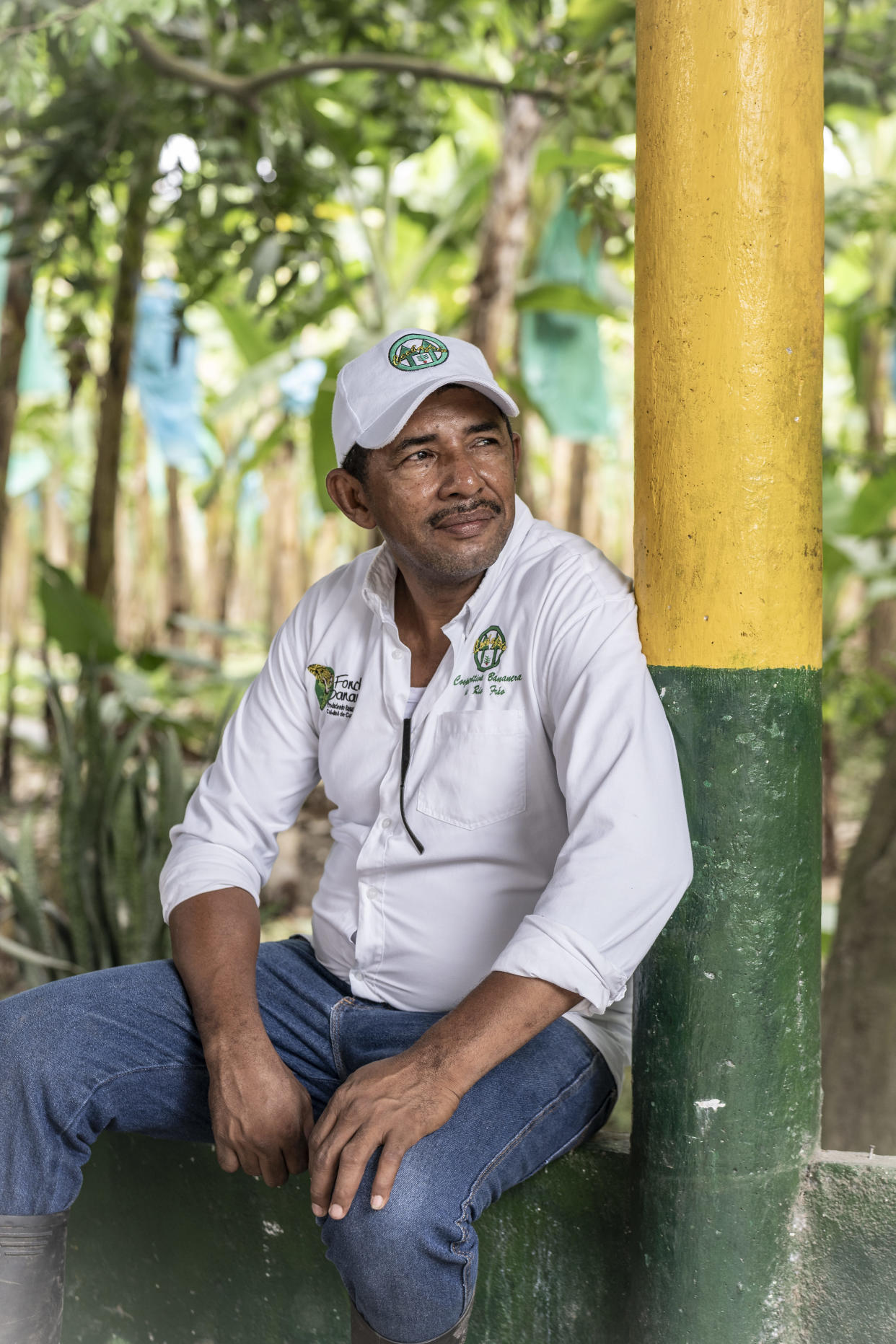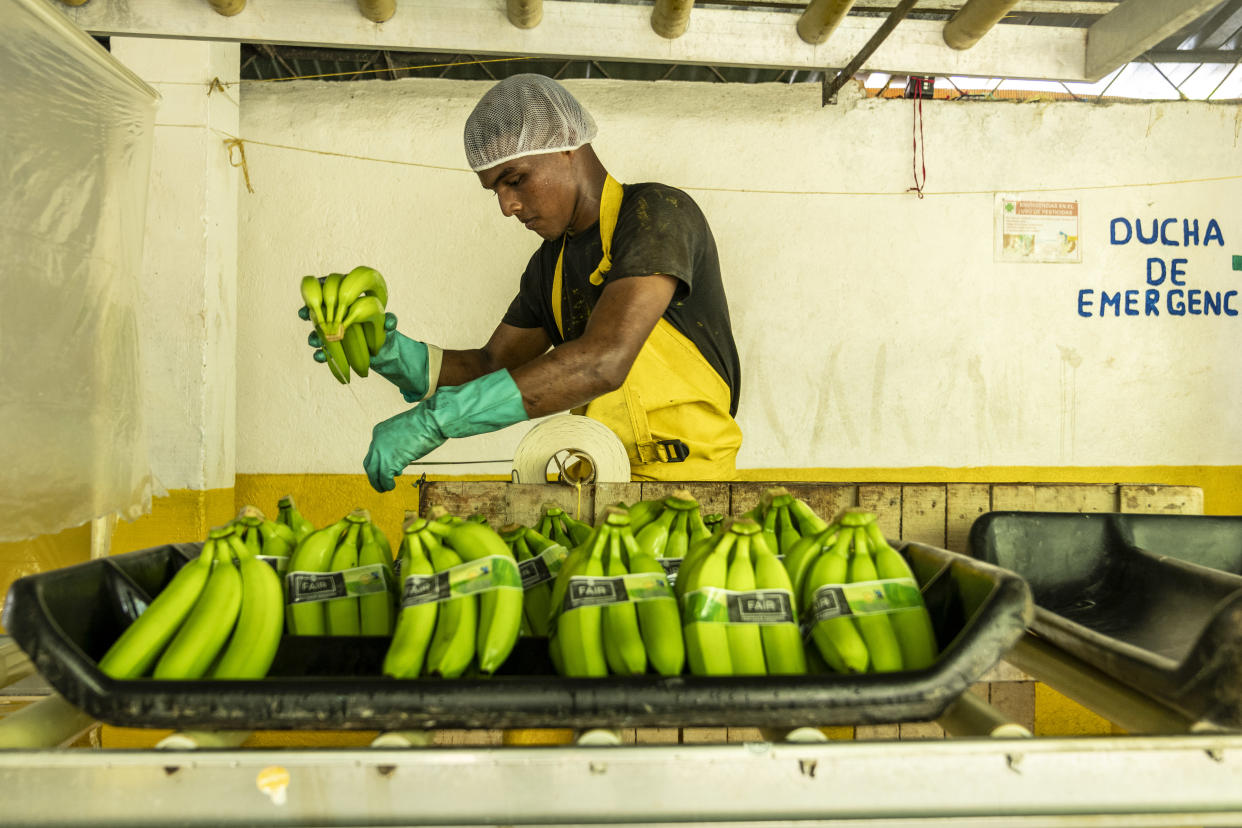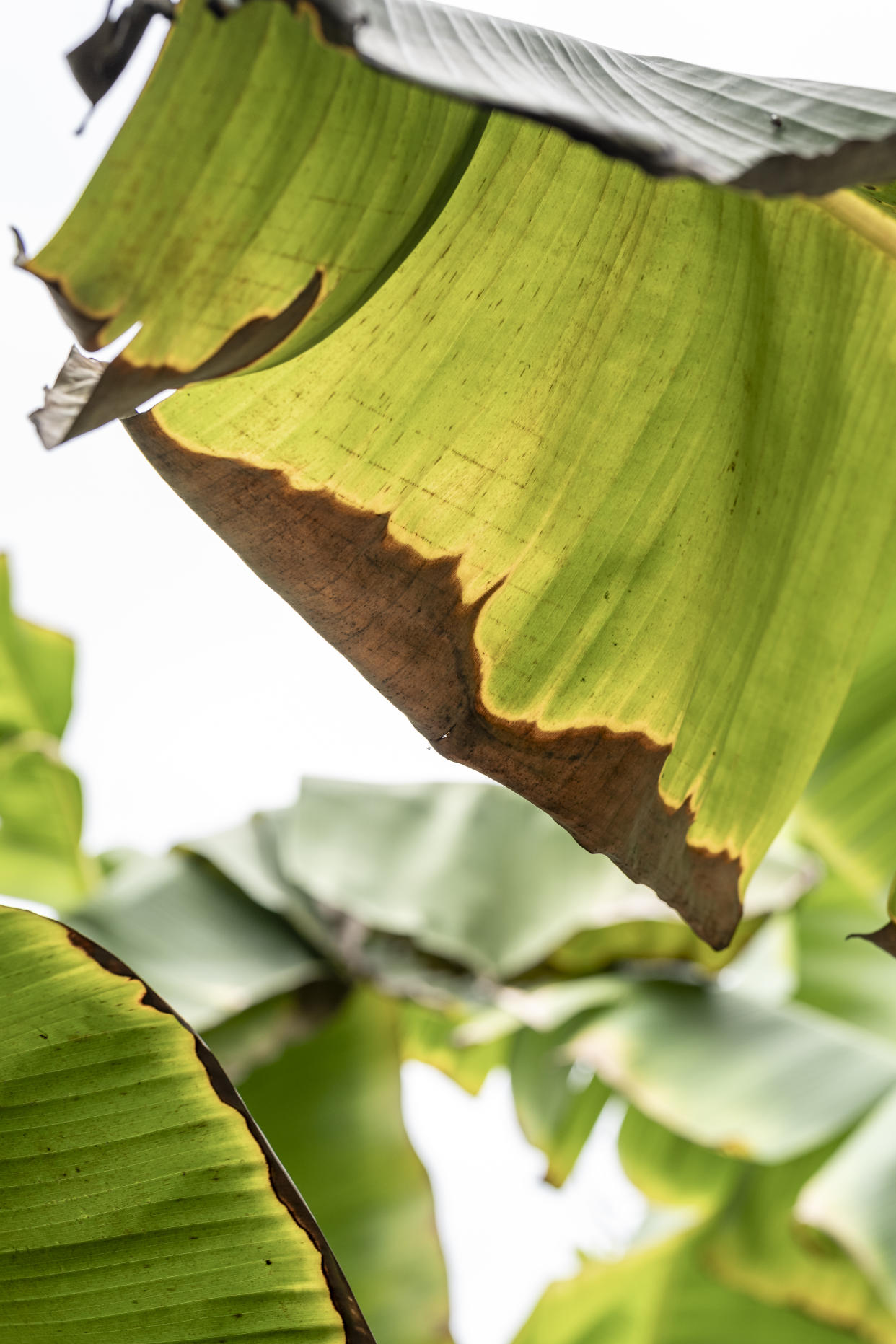Bananas at risk of devastating disease and extreme heat, Colombian farmers warn
Bananas are at risk of a “devastating” disease as extreme heat and volatile rain cycles put the plants under stress, Colombian farmers have warned.
Small-scale producers in the northern Magdalena region who supply bananas to the UK say the impacts of climate change have increased their costs and hit yields by as much as 50%.
The extreme conditions and degrading soil mean banana plants are more exposed to diseases like Fusarium TR4, which is threatening to wipe out farms across the world.

The fungus, which causes the plants to dry out, has been confirmed in more than 25 countries but was first found five years ago in Colombia, where the law states no bananas can be grown in compromised plots for 30 years.
Albeiro Cantillo, a 54-year-old banana farmer from Cienaga, known as Foncho, said no other crops are financially feasible in the area, meaning farms would be forced out of business if the disease spreads.
“It would be devastating,” he said. “The families, the workers – they would be laid off, they would be unemployed.
“We wouldn’t be able to survive if the disease came here.”
Mr Cantillo, who called for fairer prices with Fairtrade’s 2014 “Stick with Foncho” campaign, said prices are still too low a decade on, especially as farmers attempt to mitigate the effects of the climate crisis and inflation.
“For the efforts that we make here, and the costs that we have to produce the bananas, the price for a box is very low,” he said, adding that without Fairtrade, his farm would have no guaranteed price for the year.

“Either you have a big farm or you won’t survive in the business because everything is more expensive – the materials, the water, labour, electricity bills,” he said.
The challenges have been compounded this year by the El Nino weather phenomenon, intensifying heat from the sun that singes banana leaves and affects photosynthesis.
The Magdalena region is experiencing increasingly unpredictable rain patterns, with flooding in early 2023 followed by a severe drought just a year later after zero millimetres of rain fell in the first two months of 2024.
“Life is tough,” Mr Cantillo said. “There’s no rain at all so our production has decreased by 20%. For other farms, they have seen a 50% decrease compared to last year.”
One such farm is La Princessa near the town of Orihueca where it has seen the number of boxes it packs per week drop from 200 to 110 in recent years.
The farmer, Aliciviadez Verdugo, 46, said: “I am very worried about climate change.

“The sun is much stronger and there are floods. We have either too much or too little water and we are losing so much fruit.
“This is getting worse over time. The last rains brought water up to my waistline.”
Fairtrade premium payments mean farmer cooperatives have been able to invest in mitigating measures like planting bamboo as natural barriers from hurricane winds and install water pumps that can source groundwater from deep under the earth to sprinkle across the plants.
To protect their crops from TR4, farmers have also set up quarantine zones, with tall fences bordering plots and workers wearing boots that are sterilised in cement baths.
Many are also spraying bioferment – an organic locally-brewed fertiliser – on crops as part of a productivity improvement plan (Pip) developed by Fairtrade’s Latin America organisation CLAC.
Biodiversity has boomed and yields have increased by 32% per hectare on average on Pip farms, according to Jose Marulanda, a development manager at CLAC.
“Bioferment benefits the health and fertility of soil so plants are bigger and have more leaves so they are more resistant to illnesses,” he explained.
But without Fairtrade prices, many Magdalena farmers said their business would not be able to survive.
Banana producer Fredy Borja said: “The cost of production has increased rapidly, but the price of the fruit doesn’t increase in the same percentage so we are always behind.
“If Fairtrade left, we would be like orphans. We wouldn’t have stability without fair prices.”
The co-operatives in the region continue to urge British consumers to buy Fairtrade fruit as they struggle to maintain their livelihoods.
Fairtrade is also calling on the Government and retailers to do more to support banana farmers supplying UK supermarket shelves ahead of Downing Street’s Farm to Folk Summit next week.
Michael Gidney, CEO of the Fairtrade Foundation said: “One in four bananas bought in the UK is Fairtrade, meaning that the UK banana industry has a unique opportunity to drive change within the sector at scale.
“Bananas are Britain’s favourite fruit,” he added. “Without fair pricing and long-term supportive contracts, the future of bananas is at risk.
PA has contacted the Environment Department for comment.


